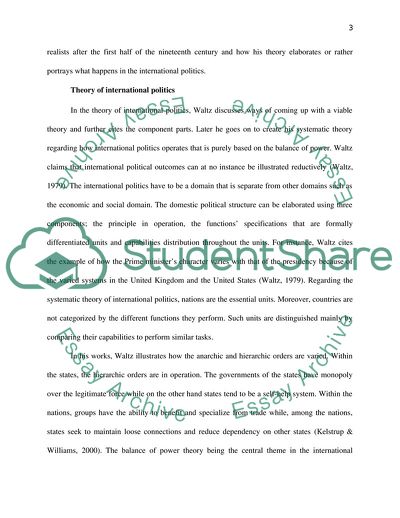Cite this document
(Waltz's Explaining of International Politics Coursework Example | Topics and Well Written Essays - 3000 words - 1, n.d.)
Waltz's Explaining of International Politics Coursework Example | Topics and Well Written Essays - 3000 words - 1. https://studentshare.org/politics/1856571-how-useful-is-waltzs-theory-for-explaining-what-happens-in-international-politics
Waltz's Explaining of International Politics Coursework Example | Topics and Well Written Essays - 3000 words - 1. https://studentshare.org/politics/1856571-how-useful-is-waltzs-theory-for-explaining-what-happens-in-international-politics
(Waltz'S Explaining of International Politics Coursework Example | Topics and Well Written Essays - 3000 Words - 1)
Waltz'S Explaining of International Politics Coursework Example | Topics and Well Written Essays - 3000 Words - 1. https://studentshare.org/politics/1856571-how-useful-is-waltzs-theory-for-explaining-what-happens-in-international-politics.
Waltz'S Explaining of International Politics Coursework Example | Topics and Well Written Essays - 3000 Words - 1. https://studentshare.org/politics/1856571-how-useful-is-waltzs-theory-for-explaining-what-happens-in-international-politics.
“Waltz'S Explaining of International Politics Coursework Example | Topics and Well Written Essays - 3000 Words - 1”. https://studentshare.org/politics/1856571-how-useful-is-waltzs-theory-for-explaining-what-happens-in-international-politics.


